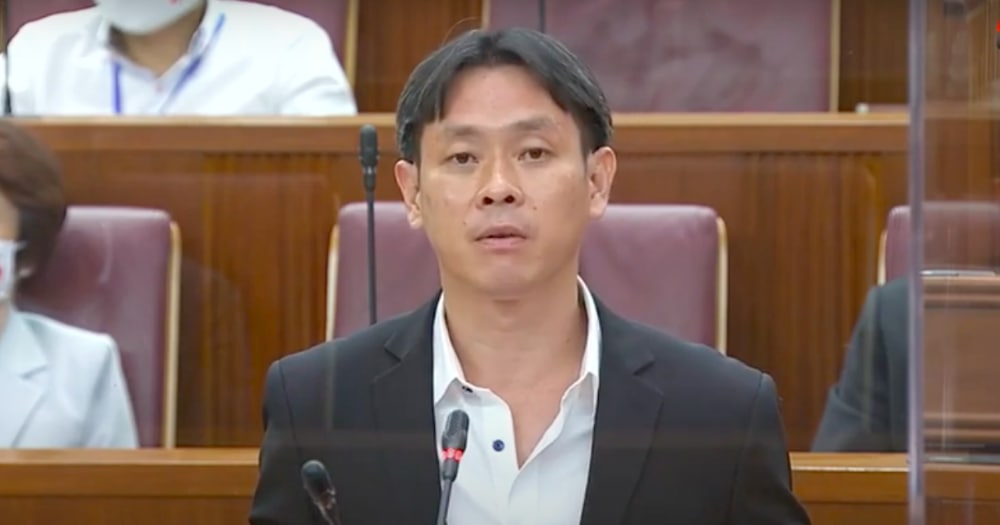Follow us on Telegram for the latest updates: https://t.me/mothershipsg
Louis Ng believes that a healthy environment and healthy economy can go "hand-in-hand", and that while Members of Parliament (MPs) push for more action on climate change, they are also mindful not to "push away" people and businesses.
Speaking during the Parliamentary motion on Feb. 1 calling on the government to do more to fight climate change, Ng said:
"Climate change is not an ecological threat that our engineers can build around. It is an economic and political threat."
He gave the example of farms and fisheries undergoing upheaval, disrupting Singapore's supply chains.
More dramatically, forest fires and the sinking of islands could affect people abroad, countries could come into conflict over water resources, and the melting of the polar ice caps could open new shipping routes that affects Singapore's status as a port.
Climate change therefore threatens the breadbaskets, livelihoods and peace of Singaporeans, he said.
Singapore must work with others
Ng spoke of Singapore's involvement in multilateral initiatives to fight climate change, such as signing the Paris Climate Agreement.
However, Singapore cannot go it alone. Ng spoke of a young climate activist, Ho Xiang Tian, who told him that "no one is Superman" and that “We cannot save the world by ourselves. But we can move others and we can change systems."
He also commended the "passionate activists" in the People's Action Party Youth Wing who are working on sustainable solutions to the climate change problem.
Importance of government and public sector action
Ng then elaborated on how the government and the public sector in particular can help Singapore achieve its climate change goals.
1. Public service sustainability standards
As the largest employer and one of Singapore's biggest business clients, government can help influence the practices of entire industries by enhancing its sustainability standards.
2. Government contracts should measure and set standards for carbon footprints.
Ng said:
"For example, public procurement standards currently require air-conditioners to have only three ticks of efficiency. We can raise the standard to four or five ticks, which will save us money in the long run while cutting emissions."
3. Every Ministry should be required to publish a yearly Sustainability Report
The public will be informed on how each Ministry is greening its standards.
Importance of carbon tax
Ng also touched upon the proposed carbon tax, calling it "Singapore’s most important policy tool" against climate change.
While the economy first needs to emerge from Covid-19, and it should start low so as not to "spook" investors, Ng believes the target of S$10 to S$15 per tonne by 2030 is "far too low". He added:
"We need to be honest with ourselves. Without a high enough carbon tax, even with all the other things we do, our
emissions level might remain high — far too high.
Research studies from Ireland, Scotland and British Columbia find that a revenue-neutral carbon tax, where the money collected is poured back into the economy, could slash emissions while boosting the economy. That is the path we need to take."
Importance of forests
Ng also spoke of the importance of forests, which act as carbon sinks.
He said that he shares the concerns of Singaporeans over the cutting down of forests, and said that he hoped that Dover Forest and Clementi Forest can be protected.
"In fact, because we have cut down so much forest in recent years, Singapore’s land now emits more carbon than it absorbs," he said.
Ng also reminded the Members that forests are sites of "irreplaceable biodiversity" with different flora and fauna.
While Singapore has committed to planting 1 million trees in the next 10 years, Ng said that Singapore should also commit to protecting an existing 1 million trees in the forests today.
Ng said, "Buildings can be rebuilt. Art can be preserved. But it will take hundreds, if not thousands, of years before a living, breathing ecosystem like a forest regrows itself."
Related story:
Top image from CNA video.
If you like what you read, follow us on Facebook, Instagram, Twitter and Telegram to get the latest updates.

